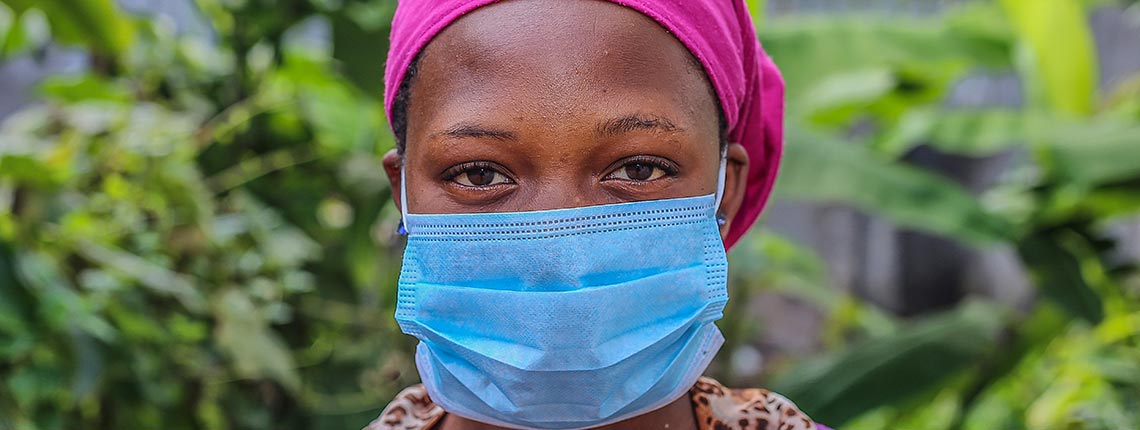COVID-19 brought into sharp focus the low level of social protection coverage of the self-employed through contributory schemes in African countries. Relief measures leveraged existing social-protection programmes and self-employed informal workers were reached almost exclusively with social assistance rather than social insurance schemes.
Another worrying finding from research in 38 African countries is that, in the 19 Anglophone countries surveyed, relief measures during COVID-19 were not codified in law, but relied on policy. The vast legislation generated to regulate lockdowns stands in glaring contrast.
While informal workers’ organizations were largely excluded from national COVID-19 decision-making structures, they were able to influence governments by direct engagement, pressure tactics, and through trade unions. Trade unions seemed better able to articulate informal workers’ social-protection and relief needs than informal workers themselves, which suggests that social protection is still far removed from the lived realities of many informal workers.
Rights-based approach to social protection
We take a rights-based approach to social protection, which implies that governments bear a duty to realize the right and are accountable for the actions they take towards this. Our overall assessment of the study is that the surveyed countries have not gone far enough to comply with their duty to extend social protection to self-employed workers, who account for a large proportion of the labour force in most countries. Shortcomings include:
- Constitutional commitments in many countries are not comprehensive enough to recognize the full ambit of the right to social protection.
- Contributory schemes cover a limited range of benefits, and few countries have adapted the modalities of their schemes to suit the needs of self-employed workers.
- Non-contributory social protection is embedded in policy rather than law and often excludes informal workers through eligibility criteria.
- There is limited provision for social dialogue in decision making through participation in governance structures for social protection.
Recent court cases in four Anglophone African countries point to the potential for litigation as a way of enforcing the right to social protection. It is possible for workers to litigate on social insurance to challenge the exclusion of self-employed workers and to demand measures to make it possible for them to participate in schemes. With social assistance, it may be possible to challenge the court’s eligibility criteria and call for universal social protection.
Socio-economic rights entail positive duties
In countries that have ratified the International Covenant on Economic, Social and Cultural Rights (ICESCR), informal workers’ organizations could consider filing complaints against their governments with the Committee on Economic Social and Cultural Rights, in addition to litigation in national courts. It may also be possible for an African organization (of lawyers/workers’ organizations) to approach the African Court of Human and Peoples’ Rights for an advisory (non-binding) opinion declaring that social-protection laws that exclude or do not adequately cover self-employed workers are incompatible with the rights in the existing binding instruments.
One hurdle that complainants would face belongs in the category of socioeconomic rights, which differ from civil and political rights, including the right to equality and the right to a fair trial. Because socioeconomic rights entail positive duties that require expenditure, they are not absolute in that they are to be progressively (and not immediately) realized and are subject to the availability of resources. This often has made courts reluctant to prescribe the nature and pace of measures that governments must take to realize these rights.
A single binding instrument
The African Union recently adopted a Protocol on Social Protection, which is significant because it means that the African Union now has a single binding instrument that addresses a broad range of social-protection issues. Previously, informal workers were either recognized partially through binding AU instruments that dealt with a limited range of social-protection issues or particular groups of people, or were included in instruments that, although comprehensive, were not ratifiable and therefore not binding on member states.
The new protocol, which was passed by Heads of State and Government in February 2022, provides for the right to social protection that is available, accessible, adequate, affordable and transparent. The right applies to everyone in Africa, including all workers. The protocol calls for states parties to establish a minimum social-protection package and commit to taking certain actions to ensure that informal workers have access to social protection through the following measures:
- Inclusion in and adaptation of general schemes
- Adaption of contribution modalities, qualifying criteria and benefits
- Systems for women in the informal economy, including maternity and health protection
- Representation of informal workers’ organizations in decision-making structures and processes
- Access to markets, progressive formalization and the protection of informal workers’ income
To bring the legislation into force, the protocol now requires 15 member states to become signatories. Countries may then ratify the protocol and implement nationally appropriate processes to consider the implications for their own legal frameworks.
There is a clear need for this comprehensive and enforceable protocol on social protection at the regional level. It is also important for African countries to make constitutional commitments to social protection that encompass all of its forms and apply to everyone, making special reference to all marginalized groups, including self-employed workers.
Based on WIEGO Resource Document No 24, which draws on data collected across 38 countries that were selected to provide a balance of different legal systems (Anglophone and Francophone) and sub-regions (West Africa, Southern Africa and East Africa).
